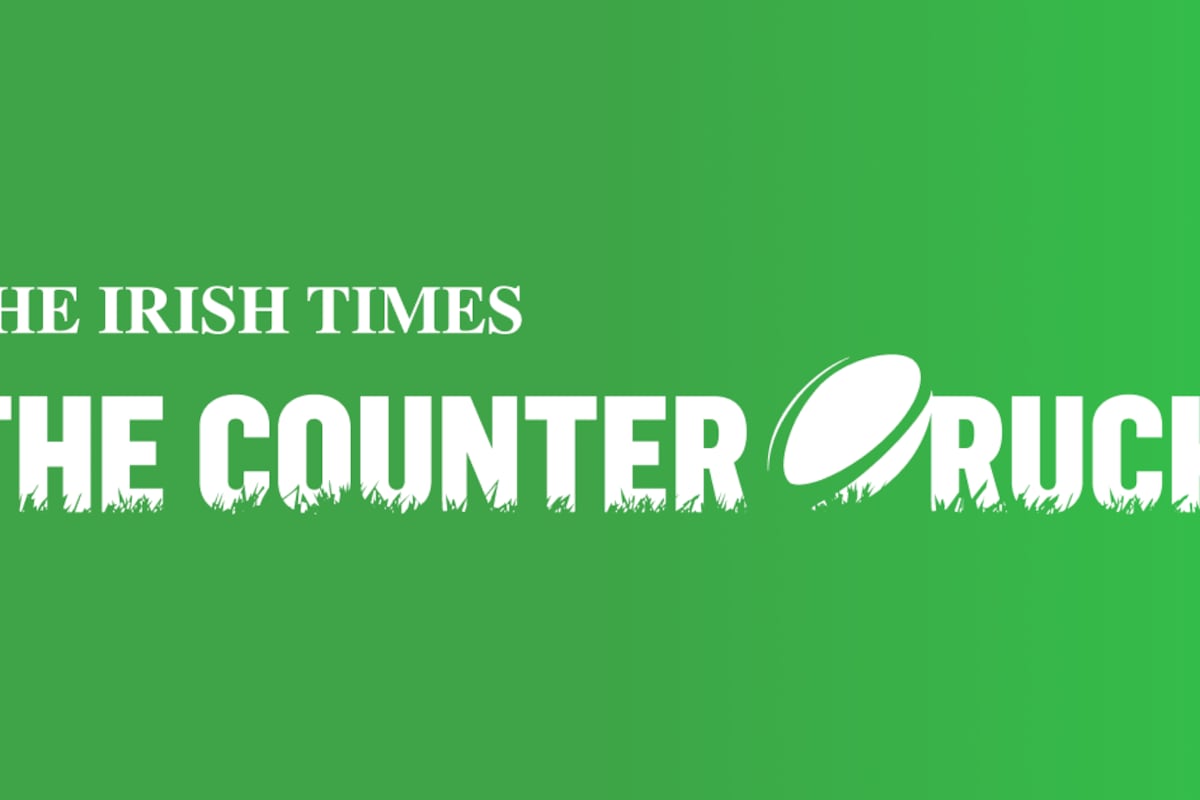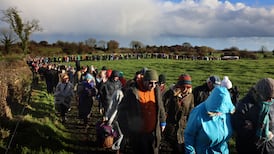Ireland head coach Andy Farrell and a downcast captain Dan Sheehan could scarcely conceal their disappointment after a third successive defeat to the All Blacks which felt even more convincing by the end than the bloodless coup in Dublin a year ago.
As then, Farrell knew that Ireland were lacking in match hardness compared to a side that has recently finished a Rugby Championship campaign but they did throw more shots than in the Aviva last year to lead 13-7 on the hour before three more All Blacks tries secured a 26-13 win.
“Obviously it’s disappointing to lose any game,” said Farrell, who had evidently expected more from his side. “When you play a top-tier side, a world-class side like New Zealand, you always want to judge yourself against that opposition. And then obviously the occasion and all that together, it hurts a little bit more.
“Understanding why that happened is key for us now. Addressing all of that and making sure we move forward very quickly for what is a pretty important autumn.”
READ MORE
Asked where the Irish display came up short, Farrell said: “I’ll start with what we did do well. I thought we managed the game tactically pretty well. I thought our kicking game, stroke territory, being in the right part of the field [was good].
“Although some of our kicks were off, the manner of them was the right thing to do. We gave ourselves a bit of territory but it’s all about converting. It’s all about putting points on the board,” said Farrell, who pinpointed a significant turning point in the game, when Jack Crowley’s pass to Jamie Osborne didn’t go to hand. From the ensuing scrum the All Blacks found the field position from which to regain the lead.
“I thought the start of the second half was pretty good but when you run a good line and drop a ball and all of sudden the ball is in behind you, you give away a turnover, kick to the corner and that’s the game. That’s how quickly the game can turn on you.
“You can defend really well at times in your own 22 but if you’re giving an infringement in the lineout and you go again, then you need to back that up and go again. But we missed a tackle and all of a sudden you’re two tries down and that’s not going to be good enough against a side like that.”

The game was discoloured by a third-minute yellow card for Tadhg Beirne which was harshly upgraded to a red, although Ireland won the ensuing 20-minute period by 10-7 and the All Blacks thereafter outscored Ireland 19-3 and four tries to none. Hence, the red card cannot be said to have significantly affected the result but it was still a highly questionable interpretation of the incident by the foul play review officer Dan Jones of England.
Farrell was reluctant to be critical of the officials but still seemed a tad perplexed.
“I don’t know because I am all for the safest way possible for this game to move forward, so you’ve got to be careful what you say in that regard. To me, if you look at it in real time, I don’t know how he was transferred [from yellow to red].
“They’ve obviously got their reasons and I wasn’t privy to that,” added Farrell, and was made all the more puzzling by the officials not being miked up inside the stadium and the lack of replays on the big screen.
“You can look at it in all angles but the only way to look at it is in real time. To me it’s a forward pass in the first place and how that influences your decision after that ... but it doesn’t matter any more does it? We got a red card and we actually dealt with it pretty well to be fair. That doesn’t make it any better.”
As to how the match slipped away from Ireland after that turning point on the hour, Farrell said: “I suppose you subconsciously suppress yourself a bit when things don’t start going your way and I’m talking two tries and the game going away from us that little bit, 100 per cent we were slower off the floor.
“I thought our fitness was pretty good. It’s what we talked about before the game, mental switch offs, mental sharpness, lapses of concentration for two or three seconds and you get hurt. We managed the red card and I thought the subs who were coming on with fresh legs, I didn’t think it was a fitness problem. It was a sharpness to our game that was the issue.
Asked if that made the defeat more frustrating, the Irish head coach said: “It’s something that we’re aware of and it’s something that over the course of a season to get better at. But if you want to win big games like this, on big occasions like here in Soldier Field, that’s what it’s going to take and we weren’t good enough.”













